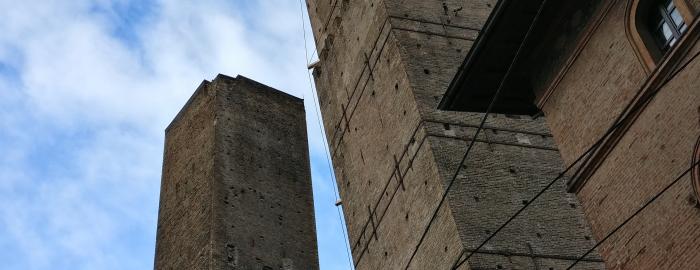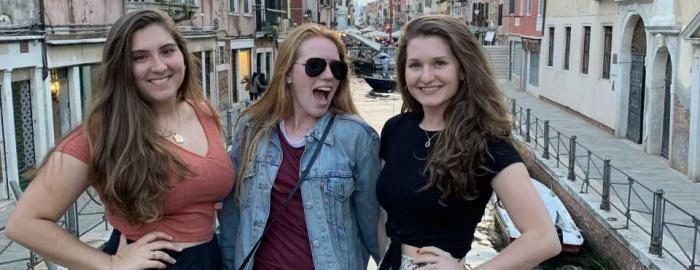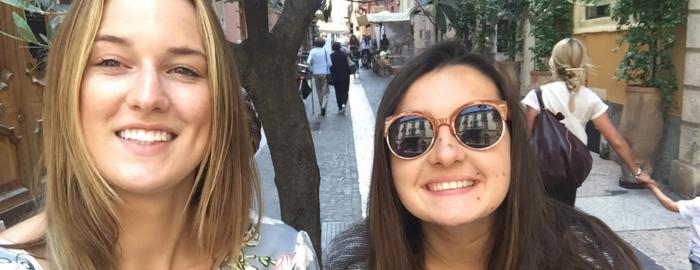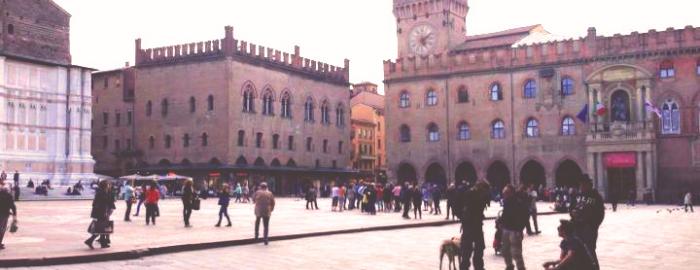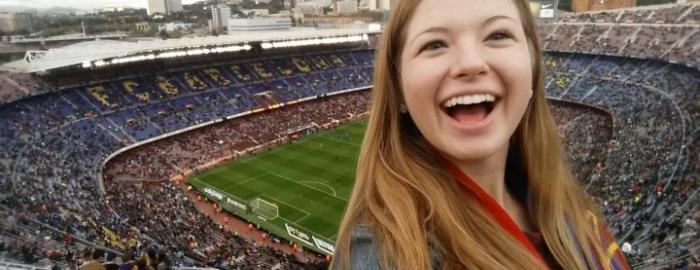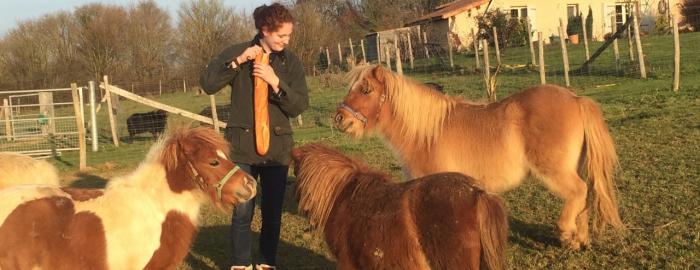Tara Nagar and Isabella Turchetta are computer science majors at Duke who both chose to spend this semester studying abroad at the Umbra Institute, an American study abroad provider in Perugia, Italy. Recently, they both sat down with Umbra staff to discuss how their classes here have directly influenced life abroad and how this experience has developed their multicultural perspectives.
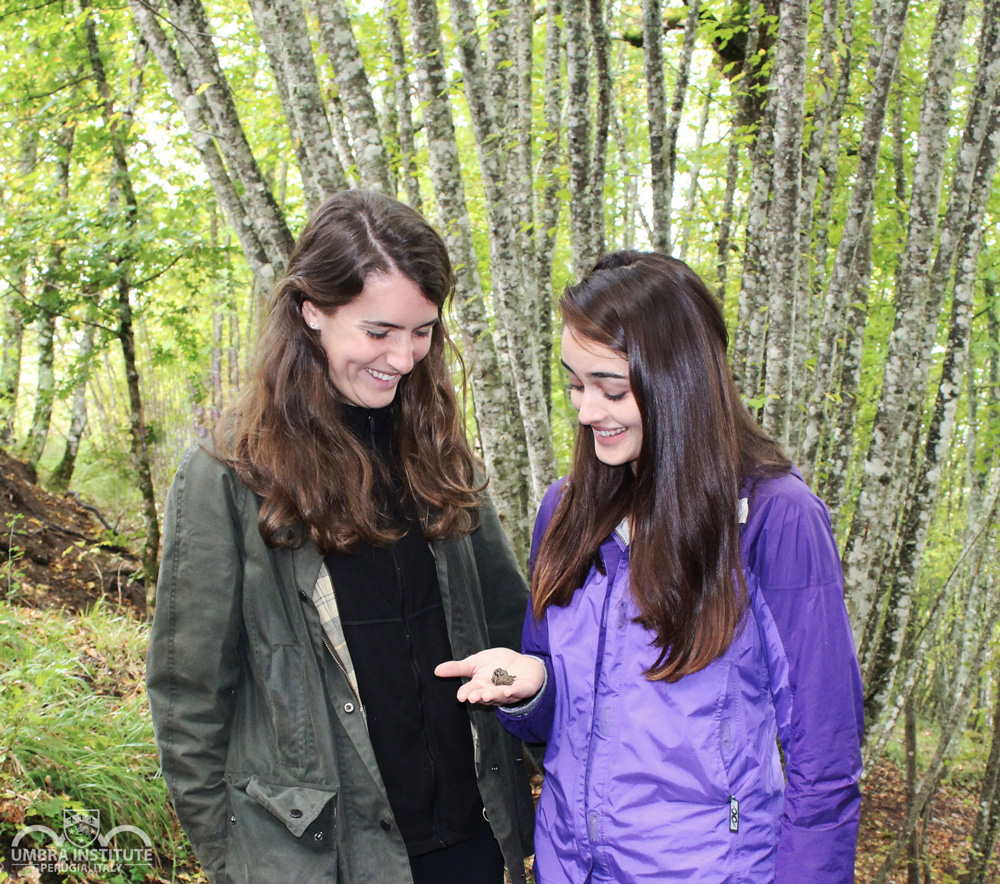
You’re taking a course about the history and culture of food in Italy—tell us about that!
We’re taking HSIT 350: The History and Culture of Food in Italy at the Umbra Institute. It’s been our favorite course this semester because it looks at history and food studies from a unique perspective. We’ve had the opportunity to take a number of field trips to visit local producers. On our last excursion to Città di Castello, a small city near Perugia, we met with a local truffle producer to learn the art of truffle hunting.
Our class discovered the challenges facing truffle hunters and how the foraging experience is directly linked to the ability of the forager to train the family dog. One of the best parts of truffle hunting is that it seemed like they were treasure hunting. The truffle hunter just follows his dog, essentially looking for treasure that he cannot see or smell, and the worth of the truffle is literally like finding a precious coin.
We also learned how spores are spread on the land in order to cultivate truffles and about the land rights in Italy that allow anyone to hunt wild truffles on another’s property, but prohibit hunters from trespassing on cultivated land.
What kinds of exploring have you done on your own time?
We decided to spend our fall break traveling throughout Italy and learning even more about Italian food culture! In class, we learned about the influence of the Arab conquest in Sicily and how Arabs brought citrus over to Italy for the first time. We did an in-class food tasting to complement class reading assignments related to citrus and honey, and we got to try all kinds of foods we would otherwise not get the chance to eat. Our professor brought us classic acacia honey, lime honey, and pistachio honey from Sicily to help us taste and understand different regional foods. The class inspired us to go see it for ourselves, so we included Sicily in our fall break plans!
What kind of cultural observations have you made about Italy?
Well, for one, I’ve learned it’s extremely important to Italians to blow-dry their hair. They literally think you are going to die if you go outside with wet hair! And there’s the Italian food etiquette that implicitly prohibits eating “on the go” and ordering a cappuccino or other milk-based drink after 11 a.m. Doing either of these things will attract odd stares from the locals.
Restaurants have a really relaxed atmosphere. They are not looking to turn tables, they want you to enjoy the food and the experience. At the same time, you have to be patient with waiters who take their time bringing the check to the table.
Overall the Italian culture is refreshing because it places an emphasis on community and allows for tasks to be accomplished at a relaxed place. Italians regularly take walks through the city center or spend time sitting in public spaces just to catch up with friends.
How has it been living in Perugia?
It took some time to adjust to the lack of pressure and rigid schedules. Achieving a sense of accomplishment is different when it’s not all about task completion. But I just love living in Perugia. It is not a place that you would necessarily think to visit on vacation because of its size, but it is where you get to know local people and they get to know you. Here, you get to branch out of your comfort zone and go into the city to meet lots of Italians.
Duke students interested in studying at the Umbra Institute will follow the application process for Duke-Approved study away programs.


